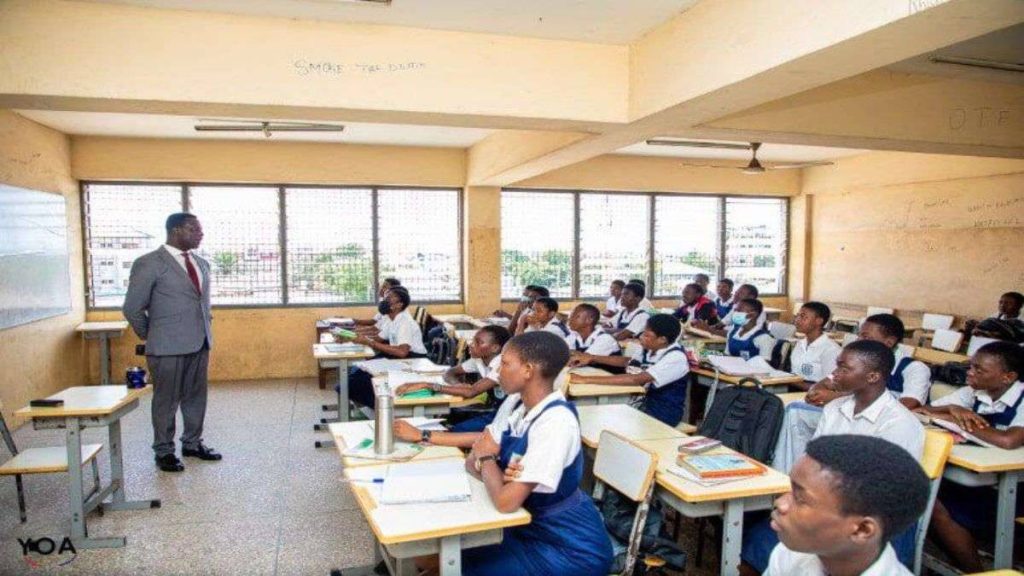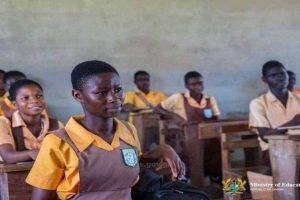AI could produce lazy & dishonest students if not regulated – MoE

The Minister for Education and Member of Parliament for Tamale South constituency, Haruna Iddrisu, has cautioned that Artificial Intelligence (AI) could produce lazy and dishonest students if it’s not regulated.
Speaking at the 22nd Biennial Congress of the University Teachers Association of Ghana (UTAG) in Aburi, Eastern Region, he stressed the need for ethical safeguards alongside digital literacy and Artificial Intelligence (AI) driven pedagogical training.
Mr Haruna Iddrisu praised the University Teachers Association of Ghana for its foresight in addressing the role of Artificial Intelligence (AI) in higher education, noting that AI was no longer futuristic but a present reality.
“AI will change the way we learn, the way we teach, and the way we practice. Mainstreaming it as part of your pedagogical changes is significant. What is important is guaranteeing ethical integrity even as we operate in the age of AI,” he said.
The Minister in Charge of Education added, “As you train persons for critical thinking and problem solving, we also should invest in improving digital literacy and AI-driven pedagogical training.”
Meanwhile, Education and Artificial Intelligence (AI) experts are advocating for the integration of AI technologies and strategic learning approaches into Ghana’s education system to align with modern global education trends.
This call was made during the Key Educational Enhancement Project (KEEP) 2025 Conference, organised by the International Community of Learning and Social Spectrums (ICLASS) under its flagship Key Africa Project.
At the conference, Artificial Intelligence and Education experts emphasised that Ghana’s schools must embrace AI-driven learning tools to remain competitive in a rapidly evolving knowledge economy.
“Parents and teachers should adapt to AI technologies so they can guide children to use them responsibly. Educators have not been adequately resourced in AI and emerging technologies, but there is still room for improvement. Industries should support the education sector to adapt because most tutors were not trained in these areas. There has to be synergy and collaboration to improve our education system,” an expert said at the conference.
In a statement sighted by Pretertiary.com, the Education Ministry said the move forms part of Ghana’s agenda to set the pace for ethical AI in education to transform teaching and learning across the country and inspire the continent.
The initiative, which is expected to support more than 68,000 teachers in delivering lessons to over 1.4 million learners, is aimed at enhancing education delivery without compromising Ghana’s ethical and cultural values.
The design of Apps, which aim to support over 68,000 teachers in delivering the new curriculum to over 1.4 million learners, was co-created by the Ghana Education Service (GES), the National Council for Curriculum and Assessment (NaCCA), the National Teaching Council (NTC),
Other co-creators are the National School Inspectorate Authority (NaSIA) and the Centre for National Distance Learning and Open Schooling (CENDLOS),
The Artificial Intelligence (AI) Application design also received input from Playlab AI, with support from Transforming Teaching, Education, and Learning (T-TEL) and the Mastercard Foundation.
Built on Ghana’s own curriculum materials, including teacher manuals, learner resources, and frameworks for national values, gender equality, and social inclusion, the Subject-Specific-Apps are designed to help teachers plan lessons and develop assessments more efficiently while ensuring alignment with national standards.
The Subject-Specific Apps are being introduced through the weekly Professional Learning Community (PLC) sessions organized by the Ghana Education Service in all 712 Senior High Schools (SHSs).
These sessions, according to the Ministry of Education (MoE) provide a platform for teachers to collaborate, test the tools, and provide feedback, ensuring that AI supports, not replaces, teacher expertise.



